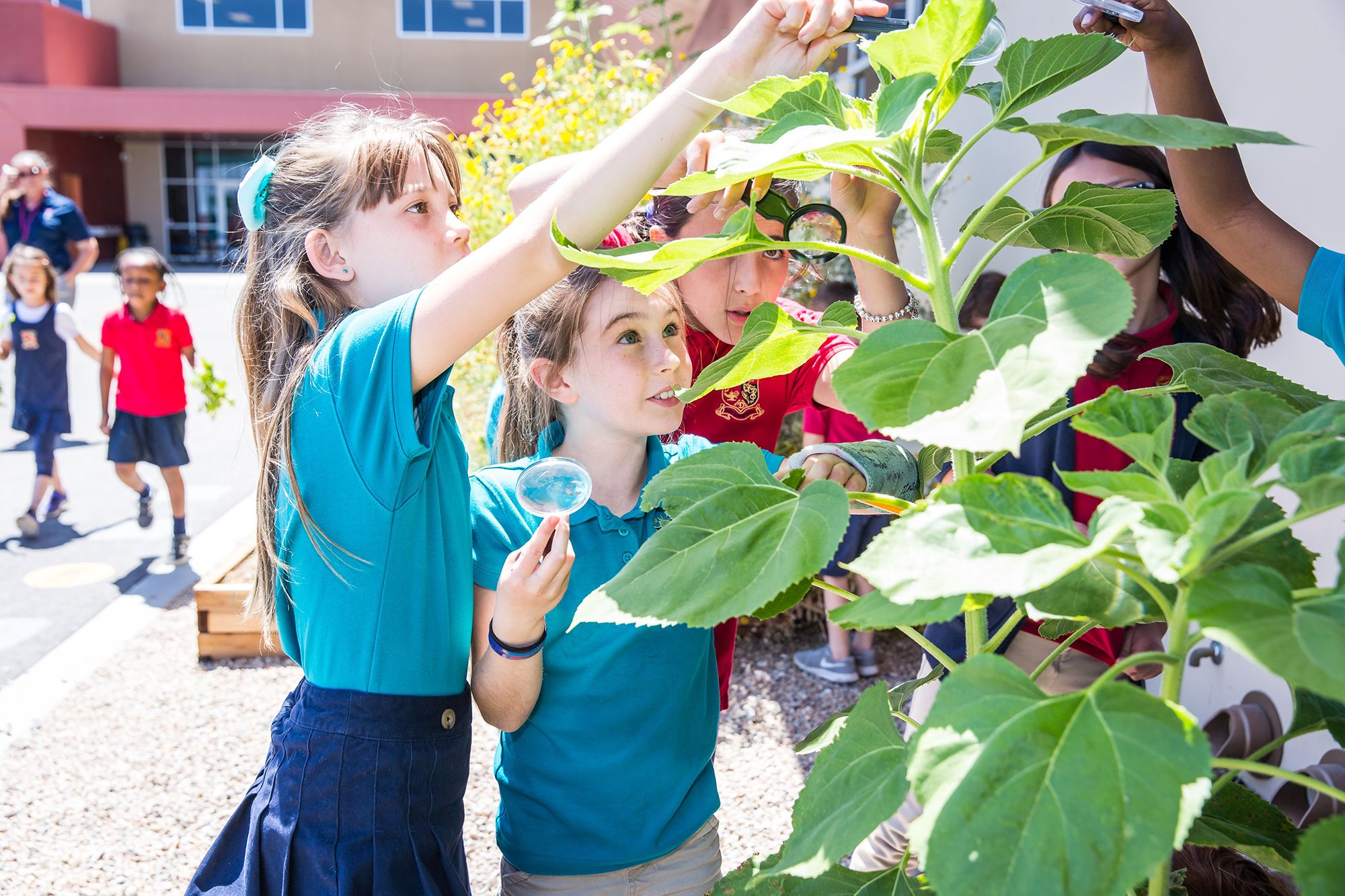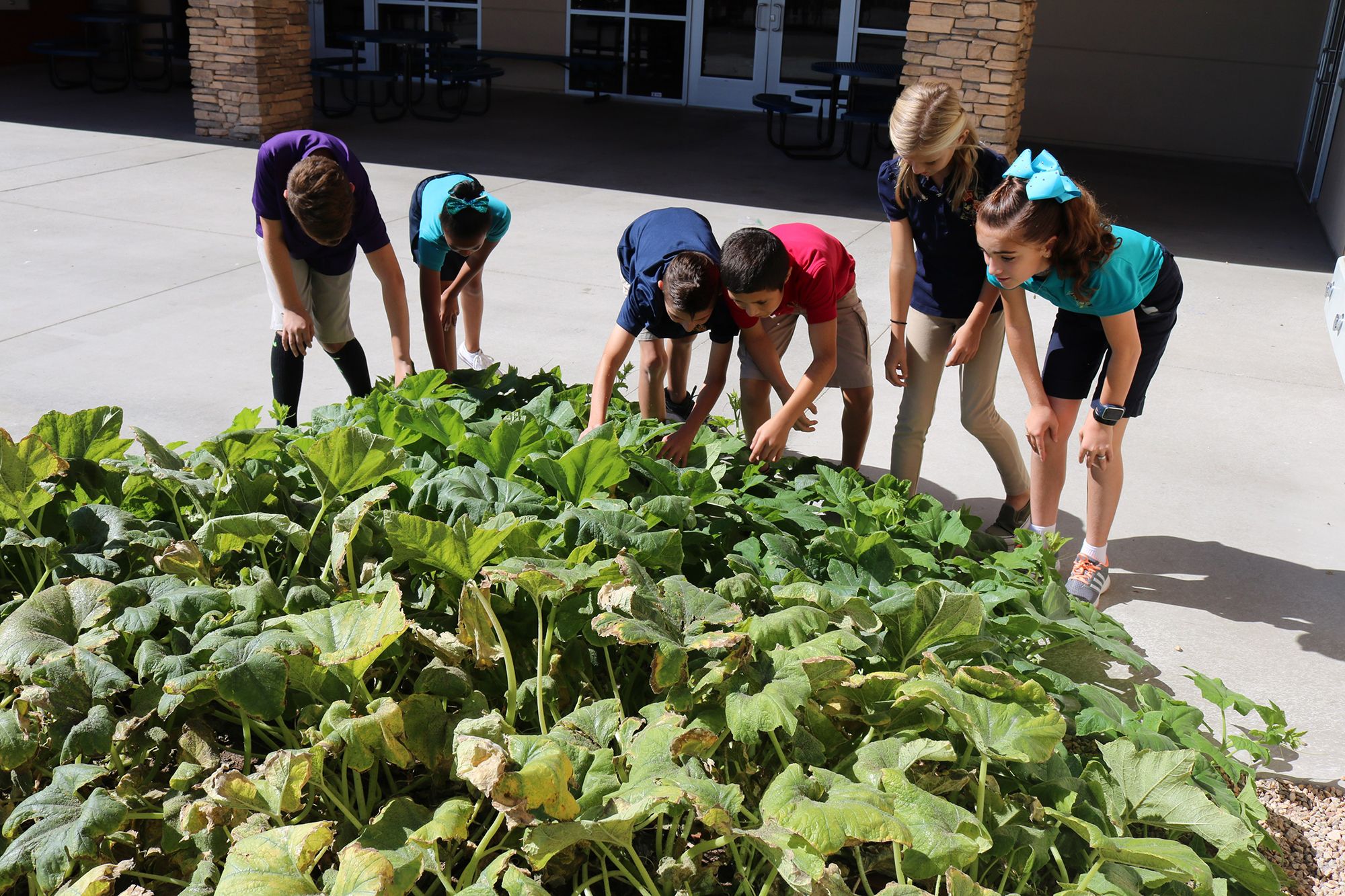Grow. Learn. Eat. Repeat
“Teaching children how to grow their own food and getting them excited and interested in gardening is not just a trend, it’s a way of life,” said Norm Schilling, president of Las Vegas-based Schilling Horticulture Group who is regarded as Southern Nevada’s favorite gardener.
“Developing a love and appreciation for farming and gardening is ideally cultivated with the young, so schools are the ideal place to introduce kids to the idea of growing their own food,” he said.
And it’s just one of the reasons why The Howard Hughes Corporation, developer of Summerlin, is helping to underwrite garden farms in the community’s schools through relationships with two nonprofits that specialize in helping schools to start school farms: Green Our Planet and Garden Farms of Nevada.
Hughes recently funded school gardens at the community’s two newest elementary schools – Billy and Rosemary Vassiliadis Elementary School and Shelley Berkley Elementary School. Hughes also supported the launch of a school garden program at Doral Academy of Nevada, Red Rock Campus, also in Summerlin. In fact, Doral now holds regular farmers markets, selling and sharing produce yielded from the school’s crops.
According to Tom Warden, Senior Vice President, Community and Government Relations for Summerlin, school gardens are a focus for the corporation as part of their Be Part of Something Beautiful campaign. This is an opportunity for students to gain hands-on knowledge of how to sustain a garden, benefit from the nutritional food in their diets and flourish from entrepreneurial skills honed when selling their corps. The entire process is a positive educational experience that Hughes is committed to launching in every public and private school in Summerlin over the next few years.
“We provide initial funding and nonprofits like Green Our Planet and Garden Farms provide the expertise and know-how to make school gardens a reality; demonstrating how they can be used to teach math, biology and environmental sciences incorporating their operation into the curriculum,” said Warden. “The benefits are incalculable and underscore our own corporate and community culture to promote a healthy, active outdoor lifestyle and recognize the beauty in our environment and experiences right here in Summerlin.”
The typical American child spends an average of eight hours per day in front of some kind of electronic device, according to the Kaiser Family Foundation. A sedentary lifestyle, coupled with poor food choices, has increased childhood obesity and related conditions like diabetes. And dropping test scores are also well-documented nationwide.
So how can school gardens help address some of these issues?
In a comprehensive review of 20 years of literature on school garden programs, 93 percent of the studies reported improved student performance in science, math and language arts.
“If we can help students learn how to eat well as children, we can help to prevent or delay chronic disease conditions over their lifetime,” said Schilling. “Gardening engages and connects people with healthy food, and kids truly love to eat what they grow.”















